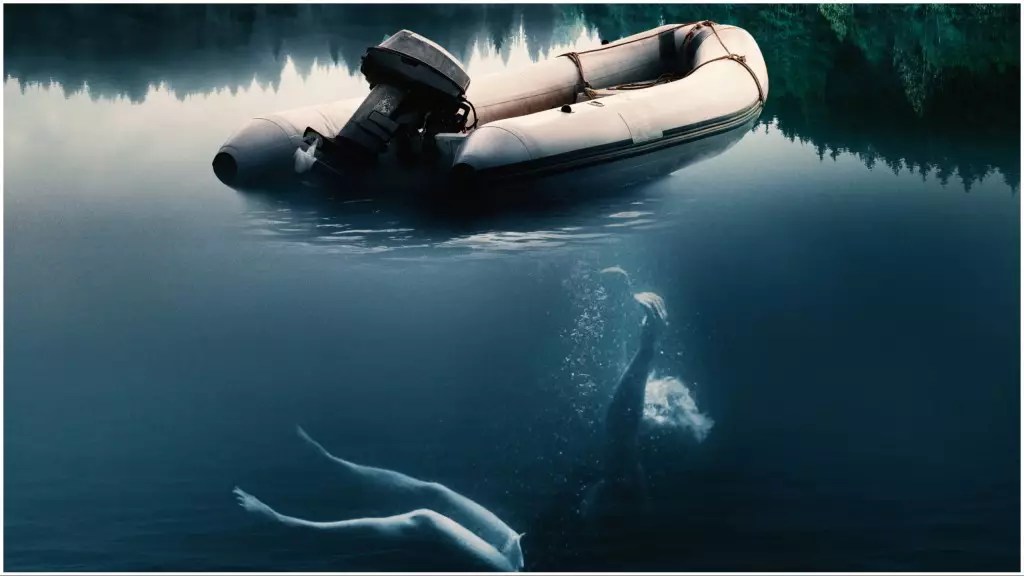The chilling true crime docuseries “In Cold Water,” set to air on Prime Video and Sky New Zealand, sheds light on a harrowing case that intertwines elements of tragedy, suspicion, and the arduous journey toward justice. This project, spearheaded by Canada’s C3 Media alongside New Zealand’s AJP Productions, chronicles the suspicious drowning of Laura Letts-Beckett, a schoolteacher, during a fishing trip in the Canadian Rocky Mountains. With her husband, Peter Beckett, as the sole witness, the series invites viewers into a complex narrative filled with deep emotional currents and moral dilemmas.
At the heart of this story lies a stark contrast between love and betrayal. Peter Beckett, a former city councilor, emerges as both a central character and a suspect. His testimony regarding the circumstances of Laura’s demise introduces both sympathy and skepticism. In an emotional recounting, Peter explains how he attempted to rescue Laura after hearing her fall into the water. He vividly describes his frenetic efforts as visions of his wife in her yellow shorts flash before him. Yet, as he poignantly recalls the traumatic moment when water was expelled from her lungs, the scene takes on a haunting quality that raises inevitable questions: Was this an awful accident, or was something more sinister afoot?
The documentary promises to peel back the layers of Peter’s narrative, which is immediately questioned by retired police officer Jacquie Olsen, who disputes the plausibility of his claims. This conflict between personal narrative and professional scrutiny exemplifies the larger themes of the series. Viewers are left to grapple with not just the event itself but the implications of grief, trauma, and the search for accountability.
The Pursuit of Justice
In a world where truth often eludes us, “In Cold Water” reminds us of the intricate dance between reality and perception. The series not only chronicles Peter Beckett’s trials—first ending in a hung jury and later culminating in a life sentence—but it also tracks the subsequent overturning of his conviction in 2021. It challenges viewers to consider the nuances of the justice system, particularly the difficulties faced in establishing guilt “beyond a reasonable doubt.” C3 Media’s executive producer, Pablo Salzman, effectively underscores the importance of this multi-layered narrative. The series is not merely about a crime; it delves into human psychology, questioning motives and examining the frailty of truth in the face of overwhelming emotional turmoil.
The allure of true crime media often lies in its ability to engage audiences on multiple levels. “In Cold Water” aims to captivate its viewers by drawing them into an unpredictable world filled with psychological complexities and emotional intricacies. Beyond the sensationalism often associated with crime narratives, this series challenges its audience to confront discomfort, asking difficult questions about trust, deception, and the inherent imperfections of human memory.
By focusing on human motivations and the quest for justice, the series seeks to immerse viewers in an authentic exploration of the case. As Salzman points out, these stories compel us to reconsider what we think we know, evoking both sympathy and scrutiny. The juxtaposition of Peter’s heartfelt testimony against the backdrop of investigation and courtroom drama creates a chaotic tapestry, ultimately leading to deep contemplation about guilt, innocence, and the shadows that linger over relationships.
As “In Cold Water” prepares to make its debut on November 12 for global audiences and on November 18 in New Zealand, it beckons viewers not only to watch but also to reflect. It asks us to consider the myriad facets of human experience—love and loss, truth and deception, grief and redemption. Through its narrative, the series lays bare the intricate layers of a life forever changed by a tragic event.
In the end, “In Cold Water” is more than a recounting of a crime; it is a poignant exploration of human experience wrapped in the enigma of justice and the scars that traumatic events leave behind. As the story unfolds, it invites us to engage critically with the emotional and ethical complexities of the case, reminding us that the truth is rarely black and white.


Leave a Reply